 |
| Best fiction of 2021 Illustration: Maïté Franchi |
Best fiction of 2021
Dazzling debuts, a word-of-mouth hit, plus this year’s bestsellers from Sally Rooney, Jonathan Franzen, Kazuo Ishiguro and more
T
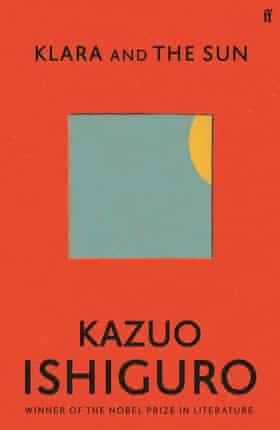
Rooney’s wasn’t the only eagerly awaited new chapter. Polish Nobel laureate Olga Tokarczuk’s magnum opus The Books of Jacob (Fitzcarraldo) reached English-language readers at last, in a mighty feat of translation by Jennifer Croft: a dazzling historical panorama about enlightenment both spiritual and scientific. In 2021 we also saw the returns of Jonathan Franzen, beginning a fine and involving 70s family trilogy with Crossroads (4th Estate); Kazuo Ishiguro, whose Klara and the Sun (Faber) probes the limits of emotion in the story of a sickly girl and her “artificial friend”; and acclaimed US author Gayl Jones, whose epic of liberated slaves in 17th-century Brazil, Palmares (Virago), has been decades in the making.
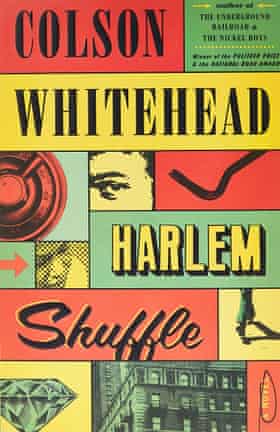
Pat Barker’s The Women of Troy (Hamish Hamilton) continued her series reclaiming women’s voices in ancient conflict, while Elizabeth Strout revisited her heroine Lucy Barton in the gently comedic, emotionally acute Oh William! (Viking). Ruth Ozeki’s The Book of Form and Emptiness (Canongate), her first novel since the 2013 Booker-shortlisted A Tale for the Time Being, is a wry, metafictional take on grief, attachment and growing up. Having journeyed into the mind of Henry James in 2004’s The Master, Colm Tóibín created a sweeping overview of Thomas Mann’s life and times in The Magician (Viking). There was a change of tone for Colson Whitehead, with a fizzy heist novel set amid the civil rights movement, Harlem Shuffle (Fleet), while French author Maylis de Kerangal considered art and trompe l’oeil with characteristic style in Painting Time (MacLehose, translated by Jessica Moore).
Treacle Walker (4th Estate), a flinty late-career fable from national treasure Alan Garner, is a marvellous distillation of his visionary work. At the other end of the literary spectrum, Anthony Doerr, best known for his Pulitzer-winning bestseller All the Light We Cannot See, returned with a sweeping page-turner about individual lives caught up in war and conflict, from 15th-century Constantinople to a future spaceship in flight from the dying earth. Cloud Cuckoo Land (4th Estate) is a love letter to books and reading, as well as a chronicle of what has been lost down the centuries, and what is at stake in the climate crisis today: sorrowful, hopeful and utterly transporting. And it was a pleasure to see the return to fiction of Irish author Keith Ridgway, nearly a decade after Hawthorn & Child, with A Shock (Picador), his subtly odd stories of interconnected London lives.
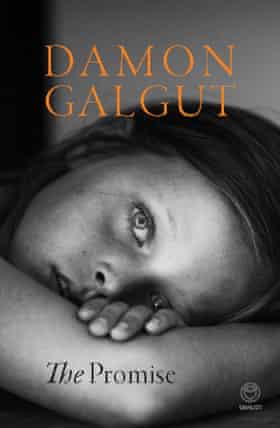
Damon Galgut’s first novel in seven years won him the Booker. A fertile mix of family saga and satire, The Promise (Chatto) explores broken vows and poisonous inheritances in a changing South Africa. Some excellent British novels were also listed: Nadifa Mohamed’s expert illumination of real-life racial injustice in the cultural melting pot of 1950s Cardiff, The Fortune Men (Viking); Francis Spufford’s profound tracing of lives in flux in postwar London, Light Perpetual (Faber); Sunjeev Sahota’s delicate story of family consequences, China Room (Harvill Secker); and Rachel Cusk’s fearlessly discomfiting investigation into gender politics and creativity, Second Place (Faber).
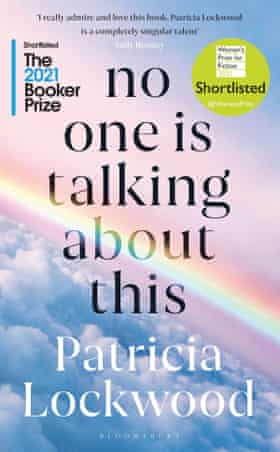
Also on the Booker shortlist was a blazing tragicomic debut from US author Patricia Lockwood, whose No One Is Talking About This (Bloomsbury) brings her quizzical sensibility and unique style to bear on wildly disparate subjects: the black hole of social media, and the painful wonder of a beloved disabled child. Raven Leilani’s Luster (Picador) introduced a similarly gifted stylist: her story of precarious New York living is full of sentences to savour. Other standout debuts included Natasha Brown’s Assembly (Hamish Hamilton), a brilliantly compressed, existentially daring study of a high-flying Black woman negotiating the British establishment; AK Blakemore’s earthy and exuberant account of 17th-century puritanism, The Manningtree Witches (Granta); and Tice Cin’s fresh, buzzy saga of drug smuggling and female resilience in London’s Turkish Cypriot community, Keeping the House (And Other Stories).
Caleb Azumah Nelson’s Open Water (Viking) is a lyrical love story celebrating Black artistry, while the first novel from poet Salena Godden, Mrs Death Misses Death (Canongate), is a very contemporary allegory about creativity, injustice, and keeping afloat in modern Britain. Further afield, two state-of-the-nation Indian debuts anatomised class, corruption and power: Megha Majumdar’s A Burning (Scribner) in a propulsive thriller, and Rahul Raina’s How to Kidnap the Rich (Little, Brown) in a blackly comic caper. Meanwhile, Robin McLean’s Pity the Beast (And Other Stories), a revenge western with a freewheeling spirit, is a gothic treat.
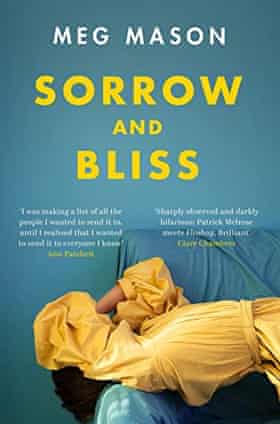
When is love not enough? The summer’s word-of-mouth hit was Meg Mason’s Sorrow and Bliss (W&N), a wisecracking black comedy of mental anguish and eccentric family life focused on a woman who should have everything to live for. Another deeply pleasurable read, The Hummingbird by Sandro Veronesi (W&N, translated by Elena Pala), charts one man’s life through his family relationships. An expansive novel that finds the entire world in an individual, its playful structure makes the telling a constantly unfolding surprise.
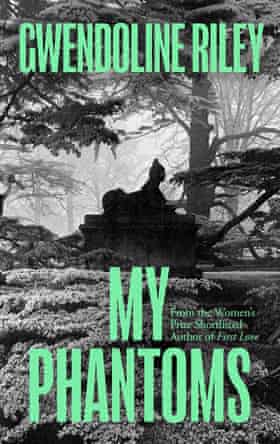
There was a colder take on family life in Gwendoline Riley’s My Phantoms (Granta): this honed, painfully witty account of a toxic mother-daughter relationship is her best novel yet.
Two debut story collections pushed formal and linguistic boundaries. Dark Neighbourhood by Vanessa Onwuemezi (Fitzcarraldo) announced a surreal and inventive new voice, while in English Magic (Galley Beggar) Uschi Gatward proved a master of leaving things unsaid. Also breaking boundaries was Isabel Waidner, whose Sterling Karat Gold (Peninsula), a carnivalesque shout against repression, won the Goldsmiths prize for innovative fiction.
It will take time for Covid-19 to bleed through into fiction, but the first responses are already beginning to appear. Sarah Hall’s Burntcoat (Faber) is a bravura exploration of art, love, sex and ego pressed up against the threat of contagion. In Hall’s version of the pandemic, a loner sculptor who usually expresses herself through monumental works is forced into high-stakes intimacy with a new lover, while pitting her sense of her own creativity against the power of the virus.
A fascinating historical rediscovery shed light on the closing borders and rising prejudices of current times. In The Passenger by Ulrich Alexander Boschwitz (Pushkin, translated by Philip Boehm), written in 1938, a Jewish businessman tries to flee the Nazi regime. The J stamped on his passport ensures that he is met with impassive bureaucratic refusal and chilly indifference from fellow passengers in a tense, rising nightmare that’s timelessly relevant.
Finally, a novel to transport the reader out of the present. Inspired by the life of Marie de France, Matrix by Lauren Groff (Hutchinson Heinemann) is set in a 12th-century English abbey and tells the story of an awkward, passionate teenager, the gifted leader she grows into, and the community of women she builds around herself. Full of sharp sensory detail, with an emotional reach that leaps across the centuries, it’s balm and nourishment for brain, heart and soul.


No comments:
Post a Comment